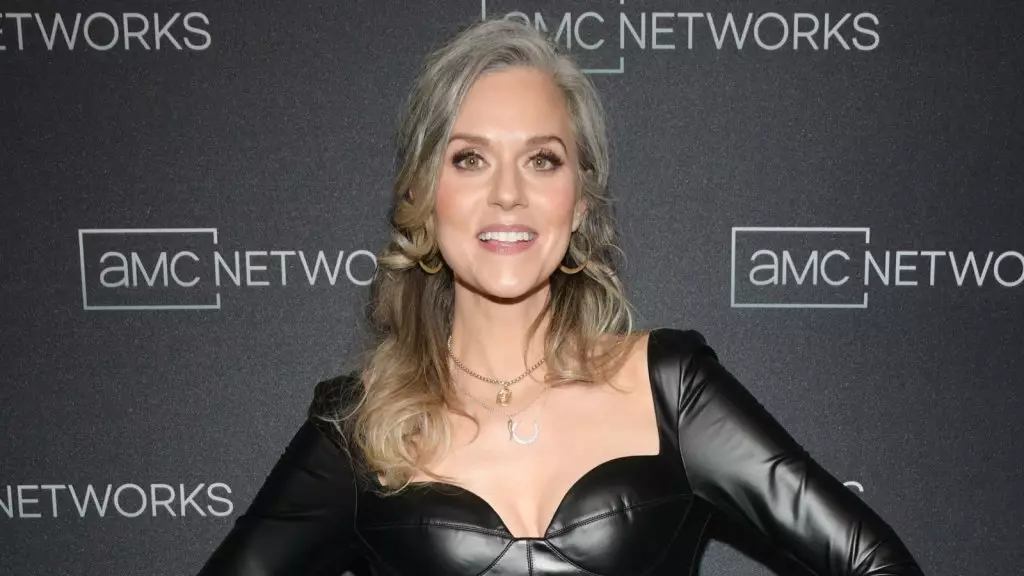The television landscape is witnessing a resurgence of nostalgia, with many beloved series returning to capture the hearts of old fans and attract new viewers alike. One Tree Hill, the iconic WB/CW teen drama that captivated audiences from 2003 to 2012, stands at the forefront of this movement. With Hilarie Burton-Morgan and Sophia Bush spearheading the revival alongside esteemed showrunner Becky Hartman Edwards, excitement is brewing over the potential reboot. This fresh endeavor may provide an avenue for these talented women to reclaim the narrative surrounding their original series, making a powerful statement in the ongoing conversation about representation and female empowerment in Hollywood.
The original One Tree Hill was a cultural touchstone for a generation of young viewers, tackling themes of friendship, love, and adolescence with an authenticity that resonated widely. However, the process of rebooting such a beloved show is fraught with challenges. Critics of revivals often argue that nostalgia can cloud judgment, leading to disappointments when original storytelling is reminisced. Yet, in the case of this reboot, many are optimistic. Burton-Morgan and Bush have articulated a clear vision—one that not only honors the past but also breathes new life into its characters.
In an industry facing scrutiny over issues of workplace harassment and gender equality, the emergence of Burton-Morgan and Bush as executive producers represents a bold step towards empowering women in television. The previous leadership of One Tree Hill came under fire, particularly due to allegations against the original show’s creator, Mark Schwahn, which cast a shadow over the series. The reboot offers both women a chance to redefine the tone and direction of the show, focusing on authentic experiences and multi-dimensional female friendships, as articulated by Edwards. As Burton-Morgan highlights, their collective vision aims to create a space where these narratives can flourish away from the male-dominated perspectives that previously marred the series.
The anticipation for this follow-up is palpable, with Burton-Morgan expressing her enthusiasm for Edwards’ ability to weave complex female friendships and intergenerational stories. This shift in narrative focus is not merely a creative direction; it encapsulates a larger movement towards inclusivity and empowerment in the realms of storytelling. Women driving the creative process behind One Tree Hill signals a change, suggesting that the industry is gradually learning to elevate women’s voices and experiences.
Central to the potential success of this revival is the strong sense of community cultivated by One Tree Hill’s original fanbase. The dedication of the #OTHfam has sustained interest in the series long after its conclusion, demonstrating how powerful fan engagement can be when considering the future of a show. As Bush noted, the response from fans has been instrumental in reigniting interest in the franchise, with many expressing a desire for a return to Tree Hill’s world—a safe haven that resonated deeply with them during their formative years.
Their support is undeniably crucial as the team navigates the reboot’s developmental phases. As of now, there is no official green light from Netflix, but the enthusiasm of both cast and viewers suggests that the momentum is building. Fans remain hopeful that their voices will be heard, with Burton-Morgan encouraging them to continue expressing their excitement as it may influence Netflix’s decision-making process.
As plans for the reboot unfold, excitement also surrounds the narrative trajectory of the characters we cherished over a decade ago. With the storyline set twenty years after the original events, it’s fascinating to ponder how beloved characters such as Brooke and Peyton have evolved. Now navigating the complexities of parenthood, these women will tackle challenges reminiscent of their own youth: love, insecurities, and grief, suggesting a multi-layered exploration of life experiences that appeals to both nostalgic viewers and those discovering the characters for the first time.
As the creative team embarks on this journey, which includes input from industry veterans like Danneel Ackles and her husband Jensen Ackles, the anticipation is high. Their contribution underscores the collaborative spirit needed to breathe life back into Tree Hill.
The revival of One Tree Hill is not just about rekindling old relationships; it signifies a deeper, more meaningful exploration of storytelling relevant to today’s audiences. With strong female creatives at the helm, fans are hopeful that this reboot will create a narrative landscape where authenticity and empowerment thrive. As we eagerly await more updates, one thing is clear: the future of One Tree Hill is alive with potential, calling back to memories while paving the way for new ones.

